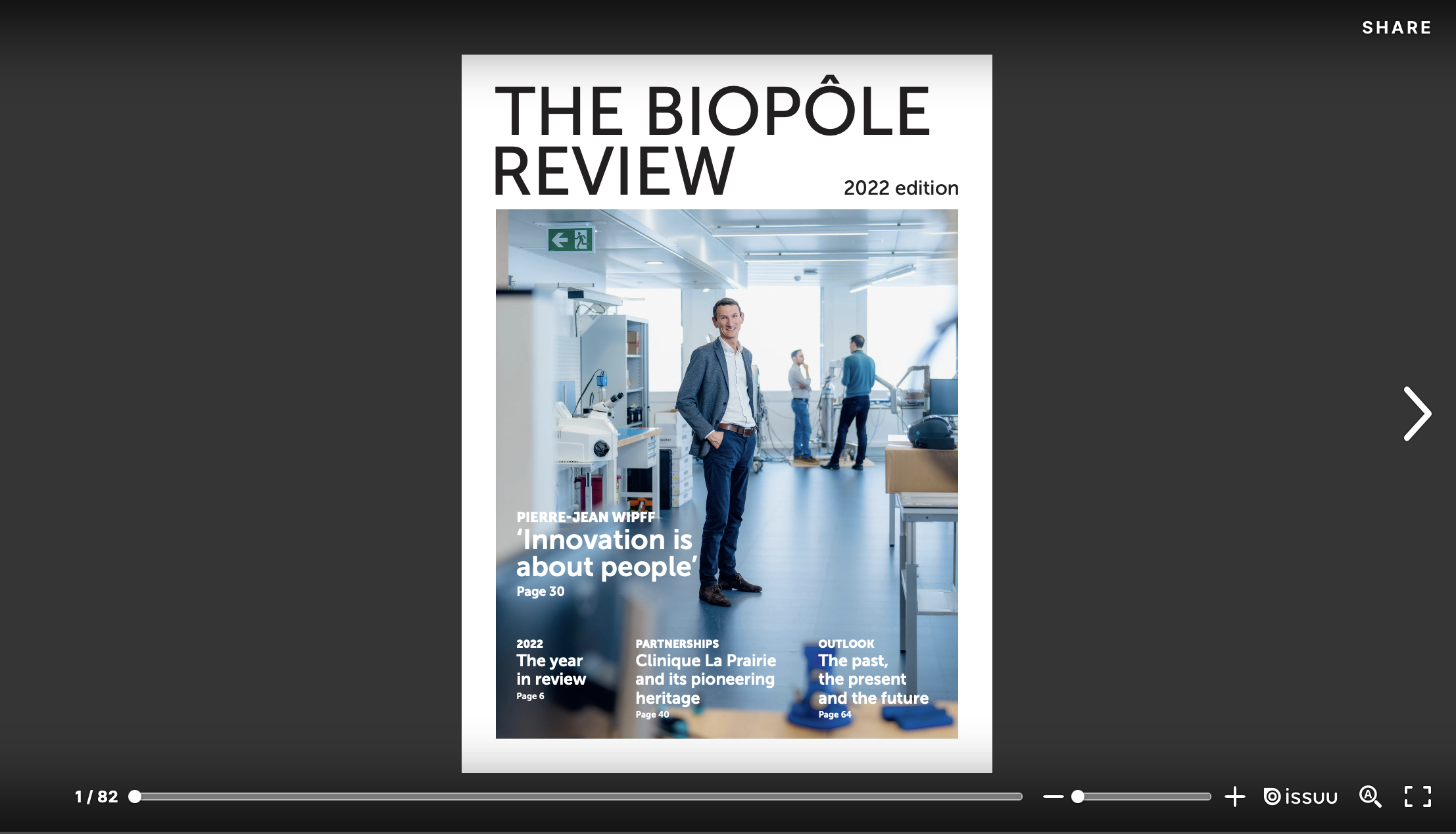Eighteen years have passed since Biopôle SA was founded by the public authorities of the canton of Vaud. What was initially planned to be a life sciences hub has become a dynamic community, in which collaboration – the raison d’être of Biopôle – is not just a consequence but a reason for members to join. We met Nouria Hernandez, the President of Biopôle SA’s Board, and Nasri Nahas, Biopôle SA’s CEO, two figures who have provided the impetus for this change, to understand the past, the present and what we can expect from 2023.
Nouria, having worked abroad for several years, why do you think life sciences companies seek to become established in Switzerland?
Nouria: There are many reasons why a life sciences company might want to base itself here. Switzerland has many strong universities and the best university hospital in the country, the CHUV, is right here in Lausanne – it was ranked 9th in the world in 2021 and 11th in 2022. That echoes the result of our survey of the Biopôle community this year, where our CEOs stated that talent acquisition is among their top priorities. I also think that the cantonal authorities in Vaud have a strong desire to support life sciences in general and innovation in particular and therefore invest in organisations that encourage them. Our region also has a huge diversity of institutions dedicated to life sciences, and they all collaborate with each other. That is an unbelievable strength. Not to mention the beauty of the place – it’s exceptionally pretty on the shores of Lake Geneva.
What role does Biopôle SA play in life sciences here?
Nouria: Biopôle SA has created a campus where you have academic institutions and companies side by side. But they don’t just coexist; they also collaborate and interact – because Biopôle SA devises events that favour interaction, which is very important because that’s often how ideas are born. Biopôle SA also does a lot to help very young companies launch and survive. One example is StartLab, which is entirely equipped to do experiments and thus suited to encouraging young entrepreneurs to make the move from academia to entrepreneurship. It also gives a lot to the academic world. Biopôle SA helps create links with business because it understands the needs of both companies and academic institutions, and what they mutually have to offer to each other. Biopôle SA is therefore in a unique position to identify opportunities for collaboration and then act as an intermediary. For example, Biopôle arranged for companies to have access to UNIL’s technological platforms. And of course, the campus also provides jobs for the universities’ graduates.
Nasri: Biopôle brings to the region a unique place for companies to thrive. It offers an ecosystem rich in diversity, home to experts in medtech, digital health, diagnostics, pharma and biotech. It’s a place where academic, clinical and industry research converge, and big companies and SMEs meet young start-ups and scale-ups.



